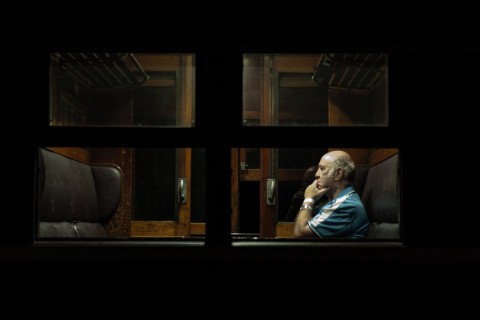Has social distancing put us in a double pandemic?
Loneliness is a public health crisis, too.

About four years ago, before any of us had been encouraged to practice social distancing because of the coronavirus pandemic, I moved to the Northwoods of Wisconsin. My family and friends worried I’d be lonely, but I embraced the peace and quiet and found myself feeling very happy among the trees and lakes. It didn’t take long for me to make friends among my fellow Franciscan sisters, to feel like I was part of a community. About once a month, I drove half the day to visit friends in other parts of the state. Occasionally I would fly to meetings in places like California and South Carolina. I even got in good enough shape to walk the Camino de Compostela in Spain. Plus, social media allowed me to grow and deepen my relationships with many people online.
Overall, my time in the Northwoods was fruitful for me. I wrote a book and completed a master’s degree, all while benefiting from natural beauty and fresh air.
For my master’s project, I researched the problem of loneliness and developed some pastoral responses. What I learned was alarming. In developed countries worldwide, at least 20 percent of the population always feels lonely and isolated. In 2018, a Cigna study demonstrated that loneliness is now at epidemic levels, with 47 percent of Americans reporting sometimes or always feeling lonely.
Loneliness is serious, more problematic than emotional discomfort. In recent years, research has proven that a lack of social connections leads to several health problems, ranging from poor immune response to heart disease. In fact, the risk factors related to feelings of loneliness are comparable to cigarette smoking and obesity. According to some estimates, loneliness could shorten one’s lifespan by as much as 15 years.
Although some dispute that loneliness is an epidemic, in the past few years public health officials have been charging us to change our self-isolating behavior. In 2017, former US surgeon general Vivek H. Murthy warned the public about the danger of loneliness. In early 2018 UK prime minister Theresa May appointed a minister for loneliness. Humans are social animals, who benefit from healthy relationships and community. Social connections are just as vital for our species as clean air, water, nutritious food, and safe shelter.
I now live in Chicago with another group of Franciscan sisters. My normal rhythm of life is a combination of outreach, community life, prayer, and work from home. Twelve days ago, though, I heard the World Health Organization announce that people with lung disease should avoid going out in public. I have asthma. Since then, I have barely left the house; I am “sheltered in place.”
And although I'm socially distancing, I haven’t felt lonely. I share a home with four other members of my religious community. Most of the time, we are in our own rooms working, resting, or reflecting. I find that silence and solitude help me maintain mental and spiritual health, as long as I am mindful and intentional in my actions. Our household gathers together a couple times a day for prayer, meals, meetings, and recreation, and I find that this structure helps me maintain balance and offers me things to look forward to.
But I am very concerned about those who are alone, vulnerable, and marginalized. About those who have had to bring chronic loneliness and sometimes mental health challenges into the mode of social distancing.
I don’t have any great ideas about how to responsibly socially distance ourselves during the coronavirus pandemic while also working to prevent loneliness. This is a terrifying and anxiety-provoking time for most of us. But we might steward this time as a chance to renew relationships, to reach out and check on those in our networks who are vulnerable and alone.
No matter what happens and how we move forward, we can all work toward health and wellbeing for the common good—so we can all emerge again one day with our bonds deeper and our faces brighter with light and love. Even though we may be physically distant from others, we can use the time and technology now available to us and work toward ending one public health crisis. Together, we can stop the spread of loneliness.




